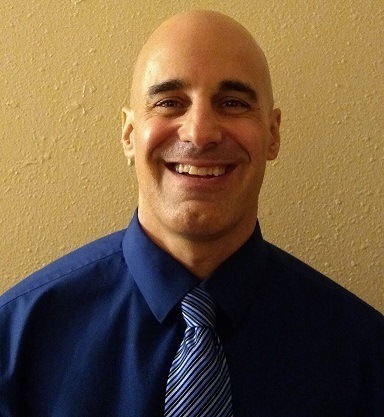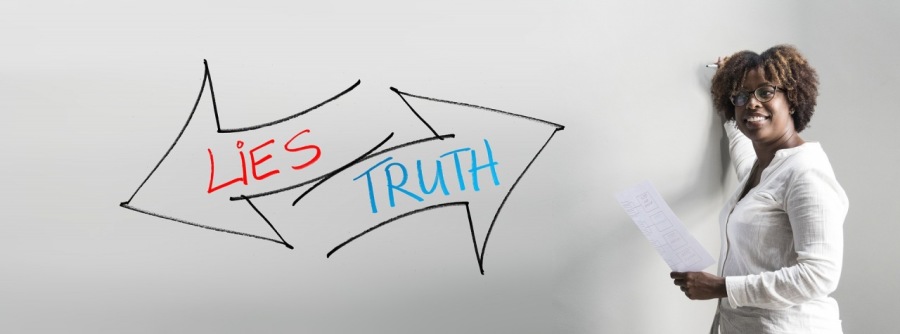Maybe This Can Be Your Breakthrough When it Comes to Your Habits

What helps create and determine successful habits and what prevents them?
We might think we know when it comes to ourselves yet we likely don’t fully understand the mechanics of our behavior.
What if we could learn a better way to create the habits and consistency that will move us through difficulty we’re weary of and would like to leave behind, for good?
What if we could learn how to more successfully develop habits that have been too daunting to attempt or with which we’ve previously fallen short in trying desperately to accomplish?
There is a very interesting and helpful conversation on The Hidden Brain podcast, hosted by Shankar Vedantam where he talks to Wendy Wood (pictured below), a psychology professor at the University of Southern California.
The episode is entitled Creatures of Habit: How Habits Shape Who We Are — and Who We Become.

There are some excellent, insightful takeaways that I’ll share with you. See what you think.
Vedantam mentioned to Wood how “our actions are not being driven by conscious and deliberate intention.” I imagine most of us feel otherwise, that everything we do is a conscious choice yet Wood’s research indicates otherwise.
“A lot of our actions are being run on autopilot,” she says. “Forty-three percent of our everyday actions are habitual.”
Does that number surprise you? Could your actions too, helpful and unhelpful in nature, be more habitual than conscious decisions?
What about change? You know, the difficult-to-accomplish type?
Wood provides some understanding that might not be illuminating to you when you think of people who frustrate or anger you but it might just be surprising when you think of your challenges.
“So many behaviors involve long-term change in behavior,” she says, adding “and that you don’t get by convincing people to do things.”
How can this be helpful in our interactions with others where we want to, or are desperate to influence or persuade? How can this be helpful to ourselves in our self talk and when we want to program our minds for more of the outcomes and results that inspire us?
One of the most educational points of the discussion between Vedantam and Wood was when Wood talked about how friction affects behavior.
“Less friction increases the likelihood of behavior,” she says, communicating that people are more likely to pursue and develop a behavior when it is less challenging to do such.
“People are most likely to repeat actions that are easy for them and actions that are fun,” Wood says. “Anything that reduces the struggle and the stress is going to make habits more likely to form.”
Friction, Wood says, is either high or low.
High friction is difficult to do and low friction is easy to do.
Wood’s teaching would indicate, if our psychology is not preventing some type of resistance to a new behavior, that the key is changing the friction, making the desired behavior easier or more fun.
For reducing or stopping behavior we no longer want or are sick of, we can increase the friction, as in making the habit more difficult to accomplish and finding a strong way to making it less rewarding.
“Add friction to behaviors you don’t want,” Wood says.
How often do people think of doing that to change habits? Probably not often. What we usually do is continue enjoying some “reward” from the habit, endure the consequences we don’t like, maybe say “this is just me, I want to change but can’t” or “it’s no big deal,” or we try and fail at different other strategies.
Maybe the change we think we want and say we want is more simple: adding friction over and over to it until we no longer want that habit any longer.
Then of course, to develop a behavior we think or say we want, the key, according to Wood is to find a reliably effective way that we accept emotionally to lower the friction, meaning, making the desired habit easier to accomplish and sustain and finding the healthy reward that motivates us consistently.
Ah, rewards. What about them?
“Habits are powerfully-shaped by short-term rewards,” Wood says. “Our brain responds with dopamine when we get rewarded and that dopamine is what helps to build the mental associations of habits in our brain.”
Dopamine is called both the feel good hormone and the feel good neurotransmitter. A big catalyst then for developing new habits we really want is finding out how to create a powerful enough, satisfying, healthy reward that attaches to it. Or multiple rewards.
For breaking up with a current habit or habits preventing us from moving forward and weighing us down, it can prove helpful to make the reward we are getting far less satisfying, even disappointing.
The question, our homework, is to answer this: how specifically can we consistently do it, make the current reward one that we longer enjoy or want? What, maybe, can we replace it with that we equally enjoy or like more, with a new habit?
If we can succeed in both creating less friction and more friction, we can help rewire our brain how we would like and live more the life that empowers and benefits us.
We can get more of what we want in life that we want and less of what we don’t want.
One more point on rewards, from Wood.
“Only certain types of rewards are going to be useful in forming habit,” Wood says. “Those are the rewards you experience immediately.”
I don’t believe she is saying that delayed gratification is not wise or that we should give into any impulse. That, to the contrary, is what creates most of our problems.
I do believe she is communicating, and I infer from her comments that we have to find a reward that is sufficiently fulfilling and immediate, even if it isn’t the ideal reward, if we are going to build a new, desired habit or replace a habit that is holding us back from what we want and with which we want to break up.
"We become what we repeatedly do.
Sean CoveyAuthor in Source Title
Michael Toebe is a specialist for reputation and crisis, serving organizations and high-profile individuals. He has written advisory articles for Corporate Board Member, Chief Executive, Corporate Compliance Insights, Training Industry and the New York Law Journal, writes and publishes the Reputation Times and the Michael Toebe Newsletter and is the author of a soon-to-be released book, Reputation Crisis: A Conversational, Professional Guide. On LinkedIn.
Articles from Michael Toebe
View blog
Self-policing might work for ethical people and organizations yet how trustworthy and reliable is it ...

“Some people lean in when their friends take heat, some people lean away. · “I decided I wanted to b ...

It feels good to be confident, to believe and know you’re accurate in your assessments, to feel “I’m ...
You may be interested in these jobs
-
Auto Repair Technician
22 hours ago
Dent Wizard Careers Buffalo, NY, United States Full timeWorking on site at customer locations, you'll fix cosmetic damages (curb and road rash, peeling, scrapes, gouges, oxidation and bent wheels) using spray-painting equipment, power tools and work aids. The process involves removing the wheels, repairing them in your mobile truck an ...
-
Senior Mechanical Engineer
14 hours ago
Black & Veatch Charleston, United States**Senior Mechanical Engineer - Hydropower - Hybrid** · Date: Apr 19, 2024 · Location: · US · Company: Black & Veatch Family of Companies · **Together, we own our company, our future, and our shared success.** · As an employee-owned company, our people _are_ Black & Veatch. ...
-
Senior Grant Writer
3 days ago
JobTrain Menlo Park, United StatesJob Description · Job DescriptionAbout JobTrainJobTrain is a nonprofit organization on the move. We are delivering best in class outcomes, increasing our reach by expanding regionally, and we have committed to an ambitious new expanded mission to help our community to advance bey ...



Comments